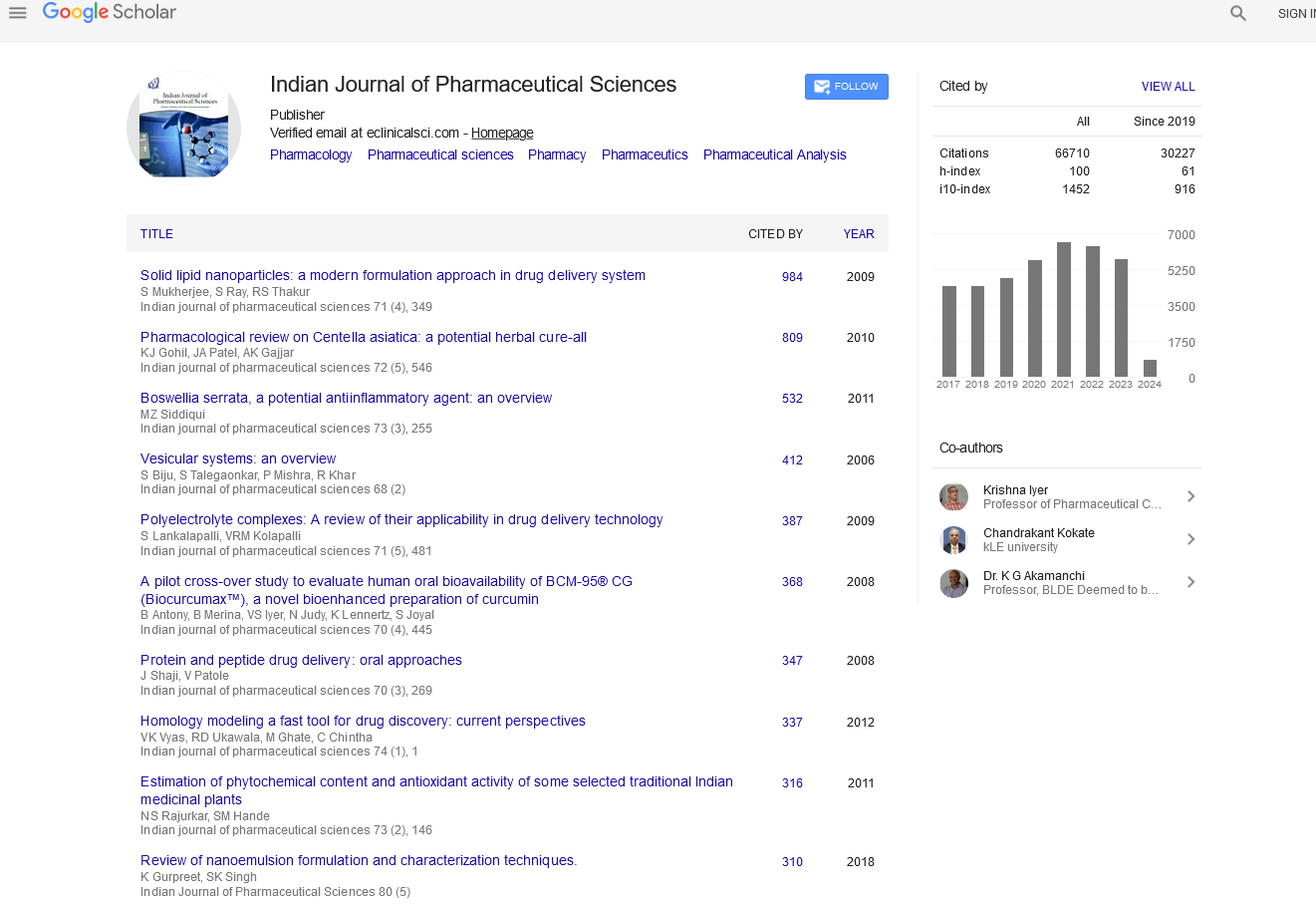Abstract
Green Synthesis of Stable Copper Nanoparticles and Synergistic Activity with Antibiotics
Department of Pharmaceutical Chemistry, Bharat Institute of Technology, Mangalpally, Ibrahimpatnam, Ranga Reddy-501 510, India
Correspondence Address:
Department of Pharmaceutical Chemistry, Bharat Institute of Technology, Mangalpally, Ibrahimpatnam, Ranga Reddy-501 510, India, E-mail: gchaitra.kiran@gmail.com
In the present study an attempt has been made to synthesize copper nanoparticles from green tea (Camellia sinensis) and β-cyclodextrin. Polyphenols present in green tea extract reduced copper ions to highly stable copper nanoparticles. They were characterized using various analytical techniques. Ultraviolet-visible spectra of copper nanoparticles showed a maximum absorbance at 659 nm. The presence of polyphenols was identified by Fourier transform infrared spectroscopy. The reduction of ionic Cu to copper nanoparticles was confirmed by scanning electron microscopy and X-ray diffraction analysis. Further nanoparticles were screened for antibacterial activity against Gram-positive and Gram-negative bacterial strains. Synergistic activity of copper nanoparticles with ampicillin, amoxicillin, gentamicin and ciprofloxacilin was also evaluated. It was observed that the antibacterial activity of these antibiotics was increased in the presence of nanoparticles. The results revealed that combination of antibiotics with nanoparticles have significant antibacterial effects especially ampicillin has shown enhanced activity. Proposed mechanism for this action was also incorporated in this study.





